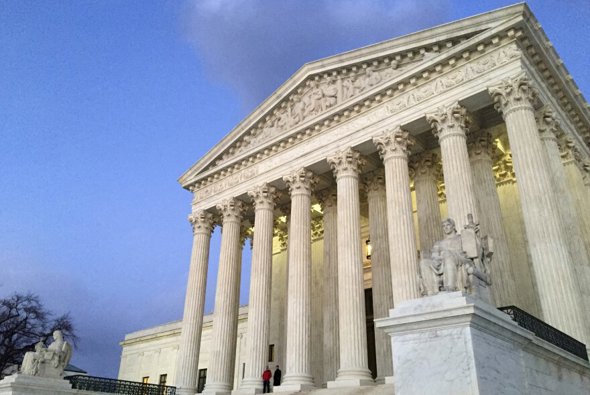
Supreme Court Backs Trump on Deportations, Florida Seeks Immigration Law
Justices side with Trump on third-country deportations as Florida pushes to enforce its strict immigration law.
Supreme Court Sides with Trump on Third-Country Deportations
In a major development on immigration, the Supreme Court on Monday granted the Trump administration’s request to lift an injunction that had blocked the deportation of certain migrants to third countries. The 6-3 ruling marks a near-term victory for the administration’s efforts to expedite removals under its ongoing immigration crackdown.
The dispute focused on a group of migrants who challenged their removal to countries not named in their initial orders—so-called third-country deportations. U.S. District Judge Brian Murphy had previously ruled that these migrants must remain in U.S. custody until given the chance for a “reasonable fear interview,” to explain fears of persecution or torture if sent to countries like South Sudan, El Salvador, or Guatemala. The Supreme Court’s decision allows the government to proceed with deportations while legal challenges continue.
Justice Sonia Sotomayor, joined by Justices Elena Kagan and Ketanji Brown Jackson, dissented sharply. She criticized the majority for what she described as an overreach, writing, “I cannot join so gross an abuse of the Court’s equitable discretion.” She argued the decision undermines due process for vulnerable migrants and accelerates removals without proper legal safeguards.
Solicitor General D. John Sauer, representing the administration, argued the lower court order had prevented the removal of individuals deemed national security threats. He maintained that all migrants subject to third-country deportation had been offered opportunities for legal review, consistent with federal law and the Constitution.
Florida Pushes Supreme Court to Reinstate State Immigration Law
Meanwhile, Florida’s attorney general, James Uthmeier, has filed an emergency appeal with the Supreme Court to lift a federal injunction on Senate Bill 4C, the state’s controversial law criminalizing the arrival or reentry of undocumented migrants previously deported or denied entry. A federal judge in Miami and the 11th U.S. Circuit Court of Appeals both blocked enforcement of the law, calling it likely unconstitutional and potentially conflicting with federal authority over immigration.
Uthmeier urged the justices to intervene immediately, warning that “illegal immigration continues to wreak havoc in the state while [the] law cannot be enforced.” He argued that absent Supreme Court action, Florida and its citizens will be unable to combat the harms he attributed to unauthorized immigration. Uthmeier asserted that the law does not conflict with federal statutes, directly challenging lower court rulings.
District Judge Kathleen Williams, who issued the original injunction, initiated contempt proceedings against Uthmeier earlier this month, alleging violations of her order as police continued to make arrests under the law. Williams defended her decision as necessary to prevent enforcement of measures she found unconstitutional.
Legal Battles Escalate as Immigration Remains Front and Center
The Supreme Court’s intervention comes amid a broader wave of legal clashes over immigration in President Donald Trump’s second term. The high court is currently reviewing a series of emergency applications from the administration, including challenges related to birthright citizenship and the scope of presidential authority over immigration policy.
Advocates for migrants argue that recent deportations to dangerous third countries put lives at risk and circumvent legal protections. The Trump administration and allied state officials counter that stronger enforcement is essential for public safety and national security.
As the legal battles unfold, the Supreme Court’s decisions will play a critical role in shaping immigration policy nationwide. For now, the administration has secured a significant, if potentially temporary, win on third-country deportations, while Florida’s strict new law awaits its fate at the nation’s highest court. The outcome will have far-reaching consequences for states, migrants, and the ongoing debate over the future of American immigration policy.






